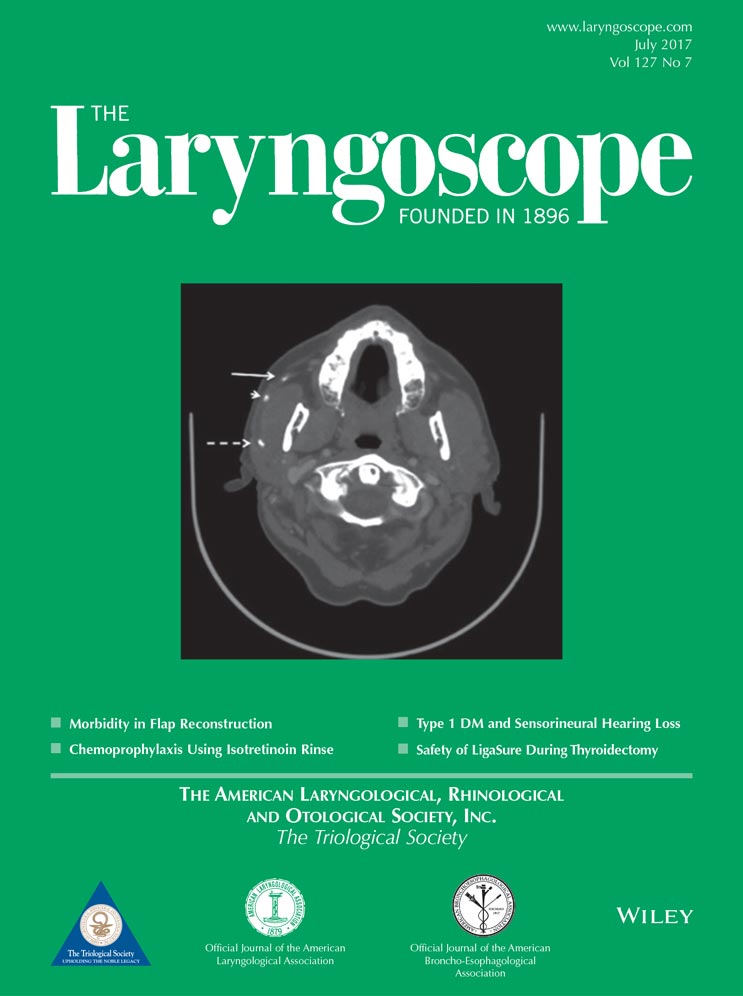Lower airway disease and pituitary surgery: Is there an association with postoperative cerebrospinal fluid leak?
The authors have no funding, financial relationships, or conflicts of interest to disclose.
Abstract
Objectives/Hypothesis
To explore the relationship between lower airway disease and postoperative cerebrospinal fluid (CSF) rhinorrhea among patients undergoing pituitary surgery
Study Design
Retrospective review.
Methods
A retrospective review of the Healthcare Cost and Utilization Project's 2013 National Inpatient Sample was conducted to characterize the hospital stay and surgical outcomes of patients undergoing pituitary surgery. Patients with lower airway disease (including chronic obstructive pulmonary disease and asthma) were compared to a disease-free population identifying demographics and complications over-represented in the lower airway group.
Results
The majority of hypophysectomies (92.1%) were performed via a transsphenoidal approach. Among transsphenoidal patients, individuals with asthma (92.8% of the lower airway disease cohort) harbored a greater postoperative CSF leak rate (4.7% vs. 2.7%, P = .022), and were more likely to develop postoperative diabetes insipidus (6.2% vs. 4.1%, P = .024) and neurological complications (13.0% vs. 9.6%, P = .010) when compared to a lower airway disease-free cohort. Patients with CSF rhinorrhea had longer lengths of stay (7.8 days vs. 4.5 days, P < .001) and higher discharge costs ($148,309 vs. $76,246, P < .001). A binary logistic regression model identified having asthma (P = .042), being female (P = .011), and having gastroesophageal reflux disease (P = .006) as independent predictors of postoperative CSF rhinorrhea.
Conclusions
Several patient comorbidities including asthma are associated with a greater risk of postoperative CSF rhinorrhea. Perioperative lower airway assessment and disease control may potentially decrease one's risk of this complication, although further inquiry is urgently needed to identify optimal preventive strategies.
Level of Evidence
2c. Laryngoscope, 127:1543–1550, 2017




